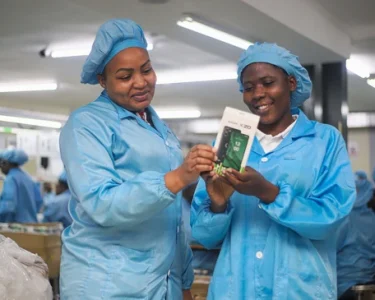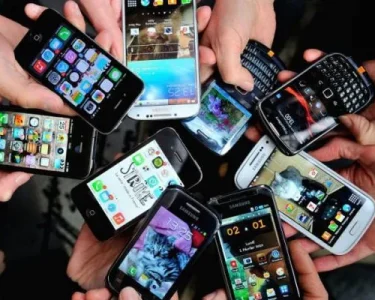Apple has finally joined the mobile 5G market with four 5G-enabled smartphones: its flagship iPhone 12 range and the premier iPhone 12 Pro range.
The iPhone 12 and iPhone 12 Mini are the American multinational phone maker’s mainstream flagship iPhones for 2020. They were announced at the iPhone 12 virtual launch last night, hosted by CEO Tim Cook.
Apple also announced the Apple iPhone 12 Pro and iPhone 12 Pro Max, a smart home speaker called the HomePod Mini, and accessories for the new iPhones that use wireless magnets to attach to them.
The iPhone 12 is a successor to the iPhone 11, while the iPhone 12 Mini has been designed in a new size, making it the smallest iPhone that Apple has introduced since the 2016 iPhone SE.
The iPhone 12 models have been given a new lookand come in 6.1-inch and 5.4-inch with identical features, featuring edge-to-edge super retina XDR displays for a brighter, more immersive viewing experience. They also have a new ceramic shield front cover, which provides protection and durability.
Although Apple is the latest to introduce a 5G-enabled phone – after competitors Samsung, LG, Huawei and Nokia introduced their 5G phones earlier this year – the iPhone maker says its latest offerings are generations ahead of the competition.
The phones support both sub-6GHz and mmWave 5G, providing capabilities to support various types of 5G networks.
In addition, Apple says its phone range features the most 5G bands on any smartphone, enabling it to support a wide array of cellular carriers around the world and various 5G standards.
5G-enabled phones that are already available globally include the OnePlus 7 Pro, Samsung Galaxy S20 Ultra, Samsung Galaxy S10 5G, Xiaomi MI Mix 3 5G,Huawei Mate 20 X 5G, Oppo Reno 5G, Nokia 8.3 5G and MOTO Z3.
The Google 5G Pixel 4 and 5G are expected to launch before the end of this month.
“The arrival of 5G marks the beginning of a new era for iPhone and we’re thrilled to bring these impressive new capabilities to our customers with iPhone 12 and iPhone 12 Mini,” said Greg Joswiak, Apple senior VP of worldwide marketing.
“We’re once again pushing the boundaries to deliver incredible computational photography advancements, and the biggest leap in durability in iPhone history with the new ceramic shield front cover. Available in two great sizes, iPhone 12 and iPhone 12 Mini take design to a new level in a new form factor that’s as beautiful as it is durable, and makes it easier than ever for customers to find the perfect iPhone to fit their lifestyle.”
The iPhone 12 and iPhone 12 Mini will be available in five aluminium finishes: blue, green, black, white and red.
iPhone 12 Mini, with a 5.4-inch display, will set the buyer back starting from $699 (R12 000) and will be available for pre-order on 6 or 7 November, with retail availability from 14 November. The iPhone 12 will start at $799 (R13 000) and will be available to pre-order on 16 October, with retail availability from 23 October.
Apple also revealed the company’s premium range, the 6.1-inch iPhone 12 Pro and 6.7-inch iPhone 12 Pro Max, which are designed from premium materials and have three cameras, as well as the A14 Bionic, which provides the fastest CPU and GPU by up to 50% compared to the fastest competing smartphone chips, according to Apple.
The iPhone 12 Pro is available for pre-order starting from $999 (R16 500), while the iPhone 12 Pro Max will start at $1 099 (R18 500).
5G on iPhone provides improved speeds for faster downloads and uploads, higher quality video streaming, secure, fast connection, more responsive gaming, real-time interactivity in apps and FaceTime in high-definition, among other benefits, notes Apple.
iPhone 12 models also introduce MagSafe, which provides high-powered wireless charging and a new ecosystem of accessories that easily attach to the device.
Last month, Apple introduced the iPad Air 4, a revamped version of its most affordable iPad range, alongside the Apple Watch Series 6 and a new subscription service, Apple One.




